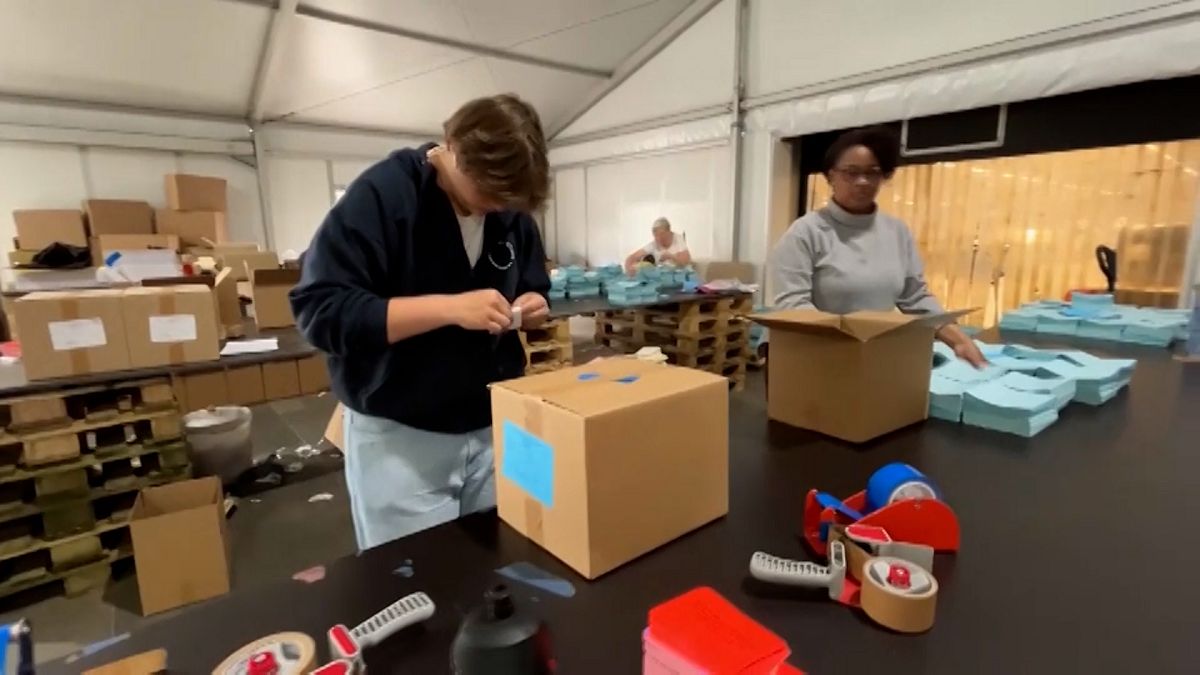The Israeli military’s announcement that it had seized “tactical control” of a sensitive border strip between Gaza and Egypt comes after weeks of rising tensions between Egypt and Israel over Israel’s advance into Rafah.
Israeli forces advanced into the roughly 14km-long area — known as the Philadelphi Corridor — in a bid to crack down on Hamas’s ability to rearm itself by smuggling munitions into Gaza through tunnels from Egypt, according to the Israeli military.The move was part of the Israeli offensive in the southern Gaza city of Rafah, which has prompted over one million Palestinians to flee.
Egypt and Israel have repeatedly butted heads over the push into Rafah. After Israel captured the Rafah crossing between Gaza and Egypt in early May, the gateway effectively shut down, with each side blaming the other for the impasse. On Monday, at least one Egyptian soldier was killed in a shooting incident with Israeli forces near the Rafah crossing; both sides say they are investigating the matter. Earlier this year, Egypt warned that if Israeli forces occupied the Philadelphi Corridor, it would pose a “serious threat” to relations between the two countries. But Egyptian officials have yet to publicly comment in the wake of the Israeli announcement.
On Wednesday night, in response to Israel’s announcement about the corridor, Egypt’s state-run Al-Qahera News channel quoted an unnamed senior official saying “there is no truth” to claims of tunnels under the border. Egyptian and Israeli authorities coordinate closely on security, with defence officials regularly meeting in Cairo and Tel Aviv. Although Egypt and Israel fought at least three major wars before a 1979 peace treaty, they now have a cold peace: Their publics rema in largely at odds, but their security establishments have close and continuing contact. Israeli military officials have generally shied away from accusing Egypt of failing to crack down on cross-border smuggling, which some analysts called an attempt to avoid damaging the sensitive and important ties between the two countries.
The Israeli military official said “tactical control” did not mean Israeli forces were present at every point along the Philadelphi Corridor. But he said it meant that Israel could effectively disrupt Hamas’s supply lines, which pass through the border zone. Another military official, on condition of anonymity, said troops had identified at least 20 tunnels running from Gaza into Egypt.
Israeli forces advanced into the roughly 14km-long area — known as the Philadelphi Corridor — in a bid to crack down on Hamas’s ability to rearm itself by smuggling munitions into Gaza through tunnels from Egypt, according to the Israeli military.The move was part of the Israeli offensive in the southern Gaza city of Rafah, which has prompted over one million Palestinians to flee.
Egypt and Israel have repeatedly butted heads over the push into Rafah. After Israel captured the Rafah crossing between Gaza and Egypt in early May, the gateway effectively shut down, with each side blaming the other for the impasse. On Monday, at least one Egyptian soldier was killed in a shooting incident with Israeli forces near the Rafah crossing; both sides say they are investigating the matter. Earlier this year, Egypt warned that if Israeli forces occupied the Philadelphi Corridor, it would pose a “serious threat” to relations between the two countries. But Egyptian officials have yet to publicly comment in the wake of the Israeli announcement.
On Wednesday night, in response to Israel’s announcement about the corridor, Egypt’s state-run Al-Qahera News channel quoted an unnamed senior official saying “there is no truth” to claims of tunnels under the border. Egyptian and Israeli authorities coordinate closely on security, with defence officials regularly meeting in Cairo and Tel Aviv. Although Egypt and Israel fought at least three major wars before a 1979 peace treaty, they now have a cold peace: Their publics rema in largely at odds, but their security establishments have close and continuing contact. Israeli military officials have generally shied away from accusing Egypt of failing to crack down on cross-border smuggling, which some analysts called an attempt to avoid damaging the sensitive and important ties between the two countries.
The Israeli military official said “tactical control” did not mean Israeli forces were present at every point along the Philadelphi Corridor. But he said it meant that Israel could effectively disrupt Hamas’s supply lines, which pass through the border zone. Another military official, on condition of anonymity, said troops had identified at least 20 tunnels running from Gaza into Egypt.




















Discussion about this post